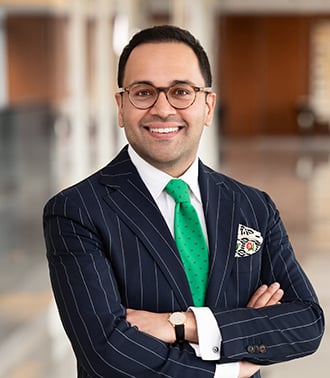Recent Settlement Highlights Increased Focus on Clinical Research Enforcement and Risks for Clinical Trial Billing
On January 4, the H. Lee Moffitt Cancer Center & Research Institute Hospital Inc. of Florida (Moffitt) agreed to pay US$19.5 million to resolve its civil liability under the False Claims Act (FCA) related to alleged conduct occurring from May 11, 2014 through May 10, 2020. Specifically, Moffitt is alleged to have:
- Submitted claims to Medicare, Medicaid, and TRICARE for clinical trial services that were billed in violation of the Centers for Medicare & Medicaid Services National Coverage Determination 310.1 governing Routine Costs in Clinical Trials
- Billed federal healthcare programs for patient care items and services provided as part of clinical trial research that should have been billed to trial sponsors or, as is customary, should have been provided free of charge for beneficiaries enrolled in clinical trials
This FCA resolution is the latest to memorialize the settling party’s efforts under the Justice Manual’s 2019 FCA cooperation and self-disclosure policy. The settlement agreement itself states that in December 2020, Moffitt initially disclosed the underlying issues to the federal government, and then initiated an “independent investigation and compliance review,” followed by a “detailed and thorough supplemental written self-disclosure.” DOJ acknowledged in its press release and settlement agreement that Moffitt “cooperated fully with the government’s investigation,” including by (1) preserving, collecting, and disclosing relevant documents and information related to the conduct; (2) disclosing facts gathered during its own investigation; (3) retaining an independent expert to assist in determining the amounts improperly billed to federal healthcare programs; and (4) implementing prompt and substantial remedial measures, including:
- Establishing a new unit within its finance department responsible for ensuring compliant billing of services provided in clinical trials
- Updating its policies and procedures relating to the billing of services provided in clinical trials
- Hiring significant additional staff to implement these new policies and procedures
- Placing a blanket hold on all charges associated with clinical trials until it could ensure that the new policies and procedures were working effectively
Based on Moffitt’s self-disclosure and cooperation, the settlement agreement used a 1.5 “single damages multiplier” for calculating the settlement payment (based on the ratio of the listed settlement payment to the designated “restitution” amount), which is consistent with other recent settlements under DOJ’s FCA cooperation policy.
While the government’s scrutiny of provider billing practices is nothing new, this is the latest example of DOJ’s scrutiny of clinical trial issues in the two years since Deputy Assistant Attorney General Arun G. Rao announced DOJ’s “aggressive” enforcement effort in the space. In 2021, DOJ convicted and sentenced a medical doctor and several other defendants to prison for defrauding a pharmaceutical sponsor by fabricating asthma drug trial data. In 2022, two medical study coordinators pleaded guilty to conspiring to falsify data to make it appear that subjects were participating in clinical trials intended to evaluate various medical conditions when, in truth, they were not. The U.S. Food and Drug Administration (FDA) later debarred these individuals in connection with their convictions. More recently, a Florida medical clinic owner and pharmacy technician were sentenced to prison in a fraudulent billing scheme for fabrication of clinical trial data and making false statements to the FDA. The indictment alleged that, from 2015 through 2018, both defendants enrolled subjects in a clinical trial who did not meet eligibility criteria, falsified laboratory results and subject medical records, and falsely represented that subjects took the drug being studied (when, as alleged, the subjects did not).
DOJ’s focus on clinical trials is not likely to end soon, especially given that provider sites which typically conduct clinical drug or device trials under service agreements with sponsors are Medicare- and Medicaid-enrolled providers, and thus responsible for complying with CMS policies governing medical necessity and reporting of overpayments. Because these parties often have an affirmative obligation to identify and report incorrect or excessive payments — including for claims submitted out of compliance with relevant Medicare clinical trial coverage policies — they can bring indirect scrutiny on the pharmaceutical and medical device company sponsor contracts under which their trials operate. The government has not indicated that it is looking at any of Moffitt’s clinical trial sponsor partners, and many recent study fraud cases have found sponsors to be victims. Still, as drug and device trials become more complex, there are significant financial incentives for research institutions and providers to participate, and this can, in some instances, create fraud risks for sponsors and trial sites alike.
Cases like the Moffitt settlement are a good reminder about the benefits of clinical research payment and billing-related compliance controls, both for drug and device company sponsors and for contracted research sites. If you have any questions about the case or related issues, please do not hesitate to reach out to the Arnold & Porter team.
© Arnold & Porter Kaye Scholer LLP 2024 All Rights Reserved. This blog post is intended to be a general summary of the law and does not constitute legal advice. You should consult with counsel to determine applicable legal requirements in a specific fact situation.




